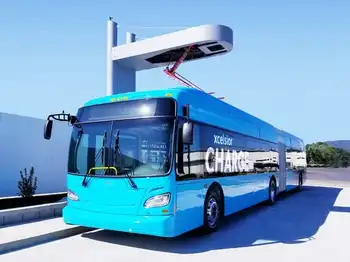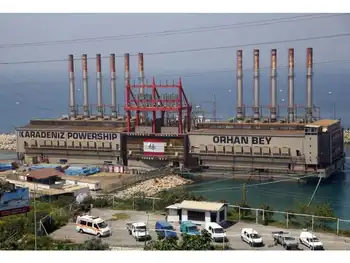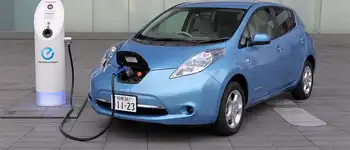Proposed coal plants caught in CO2 debate
By Associated Press
High Voltage Maintenance Training Online
Our customized live online or in‑person group training can be delivered to your staff at your location.

- Live Online
- 12 hours Instructor-led
- Group Training Available
Sunflower Electric Power Corp. needs a permit from the state to begin construction on its $3.6 billion project at a site in southwest Kansas, an hour's drive from both the Colorado and Oklahoma borders.
Even some environmentalists initially expected the Department of Health and Environment to grant the permit, despite warnings that the plants will generate millions of tons of carbon dioxide, linked by most scientists to climate change.
But more than 15 months have passed without a decision. Gov. Kathleen Sebelius and Lt. Gov. Mark Parkinson, the co-chairman of a state energy council, personally oppose the project. The attorney general has told the department it can deny the permit over concerns about CO2 emissions, even if the state doesn't specifically regulate the greenhouse gas.
Sunflower applied for its permit in June 2006. State law gives the department and Secretary Rod Bremby until Dec. 1 to make a decision, but Bremby has promised one by the end of October.
Supporters worry enough about the project's future that they've started applying pressure on the department. Legislative leaders appointed a special committee last week to examine the agency's permitting decisions.
"For a relatively conservative state like Kansas to make a decision to deny the permit would reverberate widely," said Craig Volland, a Sierra Club activist in Kansas. "We do feel better about the prospects that our voice has been heard."
Sunflower supplies power to six smaller western Kansas cooperatives with 122,000 customers. Its project would expand its existing coal-fired plant outside Holcomb, a town of about 1,900.
The utility wants to expand its generating capacity to almost five times its current size. Its existing plant is 360 megawatts; each new plant would be 700 megawatts. The 1,400 megawatts of new capacity would supply the peak electric needs of all the households in Denver, Oklahoma City and Albuquerque, N.M.
Initially, the project was even larger, with a third, 700-megawatt plant at the Holcomb site, but one of Sunflower's partners in Colorado announced it wouldn't need it online as quickly as previously thought.
Sunflower would export most of the new power to other states, but executives have said the larger operation will be more efficient, controlling costs for Kansas customers. They also argue that transmission lines required for the coal-fired plants could carry wind-generated power as well.
The project also includes construction of a bioenergy center to capture carbon dioxide, using it to grow algae for producing biofuels such as ethanol. But the bioenergy center can't be built without the new revenues from out-of-state power sales, said Sunflower spokesman Steve Miller.
"We truly believe in our hearts that we can make it carbon-neutral," Miller said.
Local leaders and many legislators view the project as badly needed economic development for rural Kansas.
"It's such an important project to the state, and really to the whole energy community, that we can't afford to let things slide," said Senate President Steve Morris, a Hugoton Republican whose district includes the Holcomb site.
But environmental concerns have inspired opposition from across the nation. The attorneys general of eight states, including California and New York, complained the project would undercut their states' efforts to regulate greenhouse gases.
"My view is that the cost to the environment outweighs any economic benefit that would be gained by building these plants," Parkinson said.
Miller said critics are focusing on potential carbon dioxide emissions because Sunflower would more than meet standards for other pollutants, such as mercury and sulfur dioxide.
But carbon dioxide also is a concern because Kansas ranks relatively high among states in per-person emissions from utilities. In June, an analysis of federal data ranked Kansas 10th in such emissions, at 13.8 metric tons per person.
Kansas doesn't regulate CO2 emissions, and this spring two Lawrence residents sued the state, hoping to force the Department of Health and Environment into it. The lawsuit is pending in Shawnee County.
But environmentalists' hopes for stopping the Sunflower project received a boost two weeks ago from a legal opinion from Attorney General Paul Morrison.
Morrison said state law allows the secretary of health and environment to declare that certain emissions constitute air pollution and to preserve the environment and public health. Such action could include denying a permit or placing conditions on it, Morrison wrote.
"The secretary is not obligated to wait until there are federal or state regulations establishing limitations on a particular pollutant," he wrote.
But denying the permit over CO2 emissions could provoke a legislative response. More than 40 House Republicans have signed letters asking Bremby to approve a permit for Sunflower.











